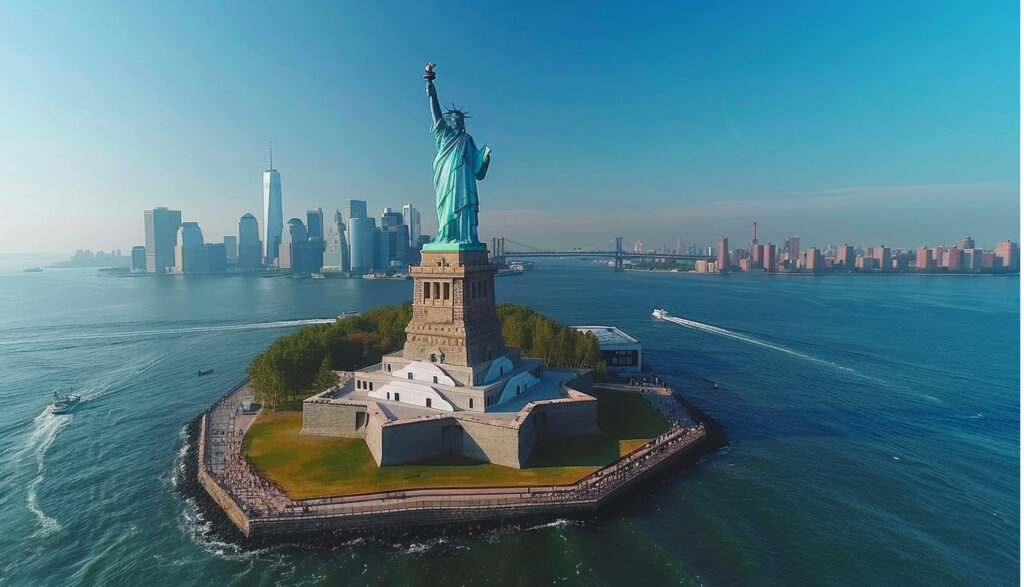The signing of President Trump’s latest budget and policy bill on 4 July brought a mixed outlook for the American travel industry, combining much-needed investment in infrastructure with troubling fiscal decisions that could hamper international tourism in the near and long term.
From a strategic standpoint, the legislation introduces commendable commitments to modernise air traffic control systems and bolster staffing levels within Customs and Border Protection measures widely welcomed by the travel sector. These improvements are expected to enhance operational efficiency at key entry points and elevate the overall traveller experience, especially as the United States prepares to host high-profile international events, including the FIFA World Cup and America250 celebrations.
However, the bill also delivers a significant blow to destination marketing efforts by slashing federal matching funds for Brand USA from $100 million to a mere $20 million – an 80% reduction. Additionally, it imposes steep increases in visa-related fees, a new $250 “Visa Integrity Fee” for non-immigrant visa applicants and an increase in the ESTA fee from $21 to $40 for travellers under the Visa Waiver Programme.
Strategic Consequences and Industry Concerns
Geoff Freeman, President and CEO of the U.S. Travel Association, acknowledged the gains in infrastructure investment but voiced strong concern over the implications of the cuts. “Bold investments in Customs and air traffic control will benefit travellers,” he said, “but the decision to raise fees on international visitors and to severely curtail Brand USA’s funding undermines these efforts.” Freeman underscored the contradiction inherent in taxing foreign visitors while simultaneously attempting to encourage international travel. “We are effectively imposing a tariff on one of our nation’s largest exports, international travel spending. These additional fees do not improve the visitor experience and risk deterring travel at a time when inbound sentiment is already fragile due to cost and visa complexity.”
Brand USA CEO Fred Dixon described the funding cuts as “disappointing” and signalled the need for a complete strategic recalibration. “We remain committed to promoting the United States abroad, but the current budgetary landscape will require a significant reassessment of our programming and reach,” he noted. Dixon reaffirmed Brand USA’s intent to continue advocating for funding restoration while focusing on key global opportunities ahead.
Economic and Policy Implications
The timing of these cuts is particularly concerning given the anticipated influx of international visitors around upcoming global events. Industry leaders argue that reducing promotional support at this juncture could stifle economic potential, especially in secondary cities and rural regions that benefit most from international tourism. While business-oriented sectors, such as the American Hotel & Lodging Association (AHLA), welcomed provisions within the bill that extend favourable tax frameworks for small business owners, the broader tourism ecosystem could suffer from reduced visitor flows. AHLA President Rosanna Maietta described the bill as a “game-changer” for small businesses, citing long-term tax stability and incentives that enable reinvestment and job creation.
Looking Ahead
For senior travel stakeholders, the challenge now lies in navigating a policy environment where infrastructure investment exists in tension with reduced marketing capability. The cuts to Brand USA are likely to have both immediate and longer-term consequences: a contraction in destination visibility, reduced international market share, and lost economic gains particularly from high-spending long-haul visitors. With inbound tourism accounting for a major share of export earnings, such policy decisions risk compromising a sector that is not only a vital driver of GDP but also a diplomatic bridge. As the industry prepares for major events and an increasingly competitive global travel landscape, restoration of promotional funding and smarter visa policies will be essential to preserve America’s place on the world tourism stage.


